All the Singular Ladies
In which Norm experiences the highs of THE MARVELS and the lows of PRISCILLA.
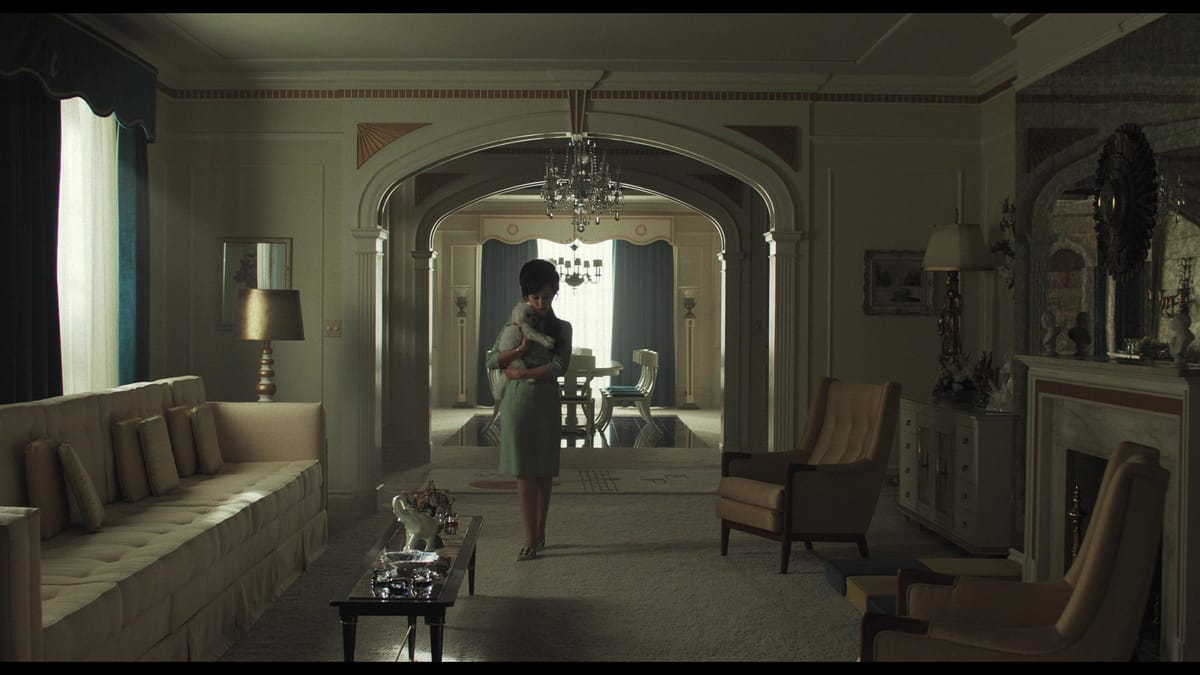
Nia DaCosta’s The Marvels and Sofia Coppola’s Priscilla both landed on disc this week, and while there’s a great deal of sunlight between them it’s my burden to find the connections between works of art, so … maybe they’re both about young women coming into their own within complex and unyielding organizational structures?
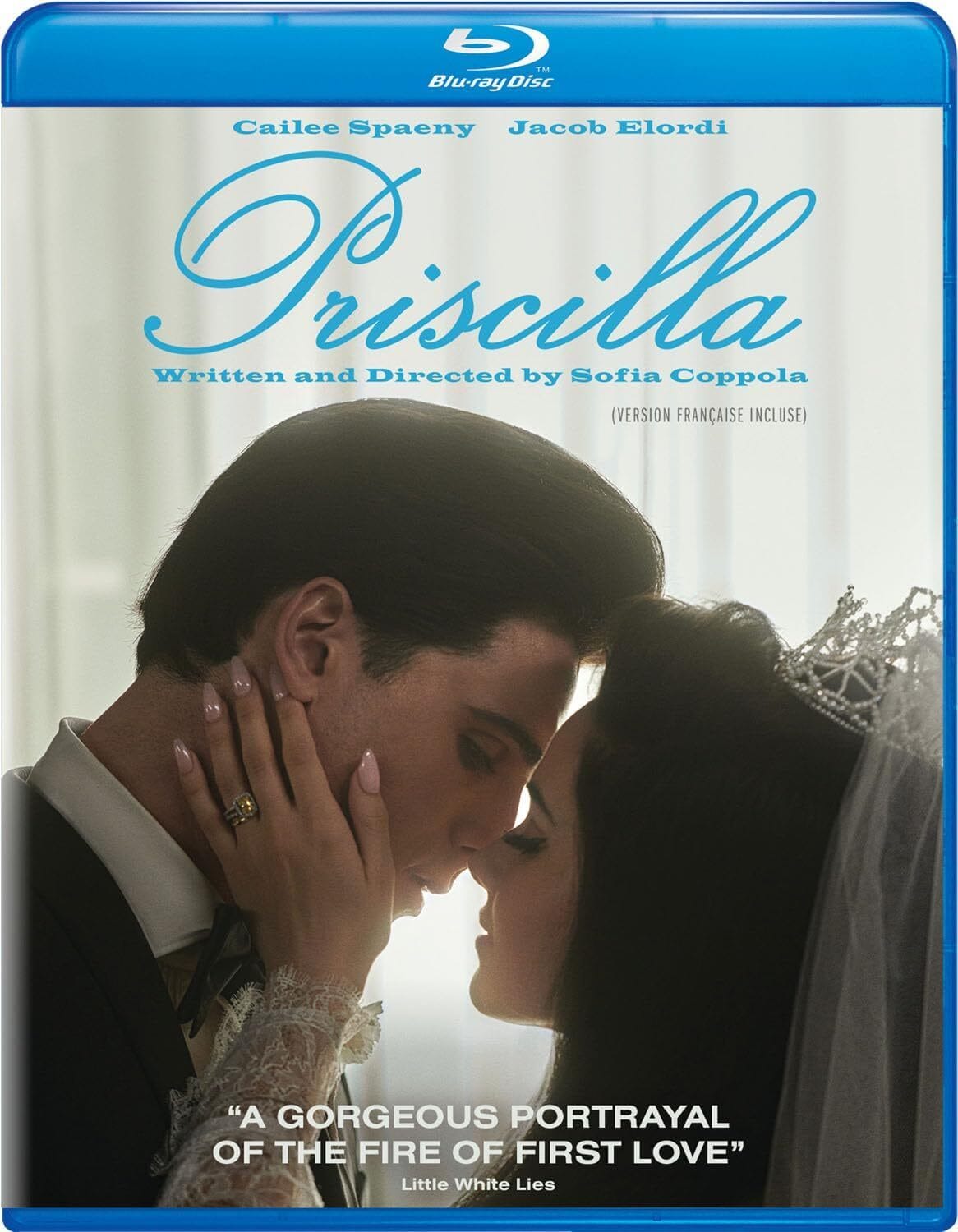
I mean, probably not. But Priscilla is the story of a teenager groomed by her much older, much more famous boyfriend to be a deferential and reflexively supportive wife at a time when feminism was just beginning to coalesce as a concept, and The Marvels has Kamala Khan, a teenager with almost unlimited power who wants nothing more than to team up with the superheroes she idolizes, which will mean learning a few hard lessons about making sacrifices for the greater good. But … nah, no, they’re very different movies. Let’s not make this any more complicated than it is.
Priscilla first, because it turns out I already wrote the opening movement of my review last fall:
In his Film Freak Central review of Sofia Coppola’s Priscilla, Walter Chaw opens by taking the director’s critics to task for claiming she keeps telling stories about the same type of protagonist – to quote John Harkness again, that all of her films are poor-me studies of beautiful, wealthy people who, despite being beautiful and wealthy, cannot be happy with what they have.
For what it’s worth, I think Coppola’s critics are half-right; the issue isn’t that her characters all share a certain existential state, but that she keeps telling the same story, and after a quarter of a century it’s getting stale. (God knows I’ve said the same thing about Wes Anderson.) But it pulls at a larger question: What do we want from our auteurs? Do we want them to serve us the same gourmet meal every time, or surprise us with something entirely different?
So if you’re looking to submerge yourself in the dreamy, sequestered vibe that is Sofia Coppola’s whole deal, Priscilla will not disappoint. It is that and not much more, a negative image of Baz Luhrmann’s frenetic, hyperactive Elvis told from the perspective of a woman who remained on the outer rim of Presley’s universe, even though he kept telling her she was the one closest to him.
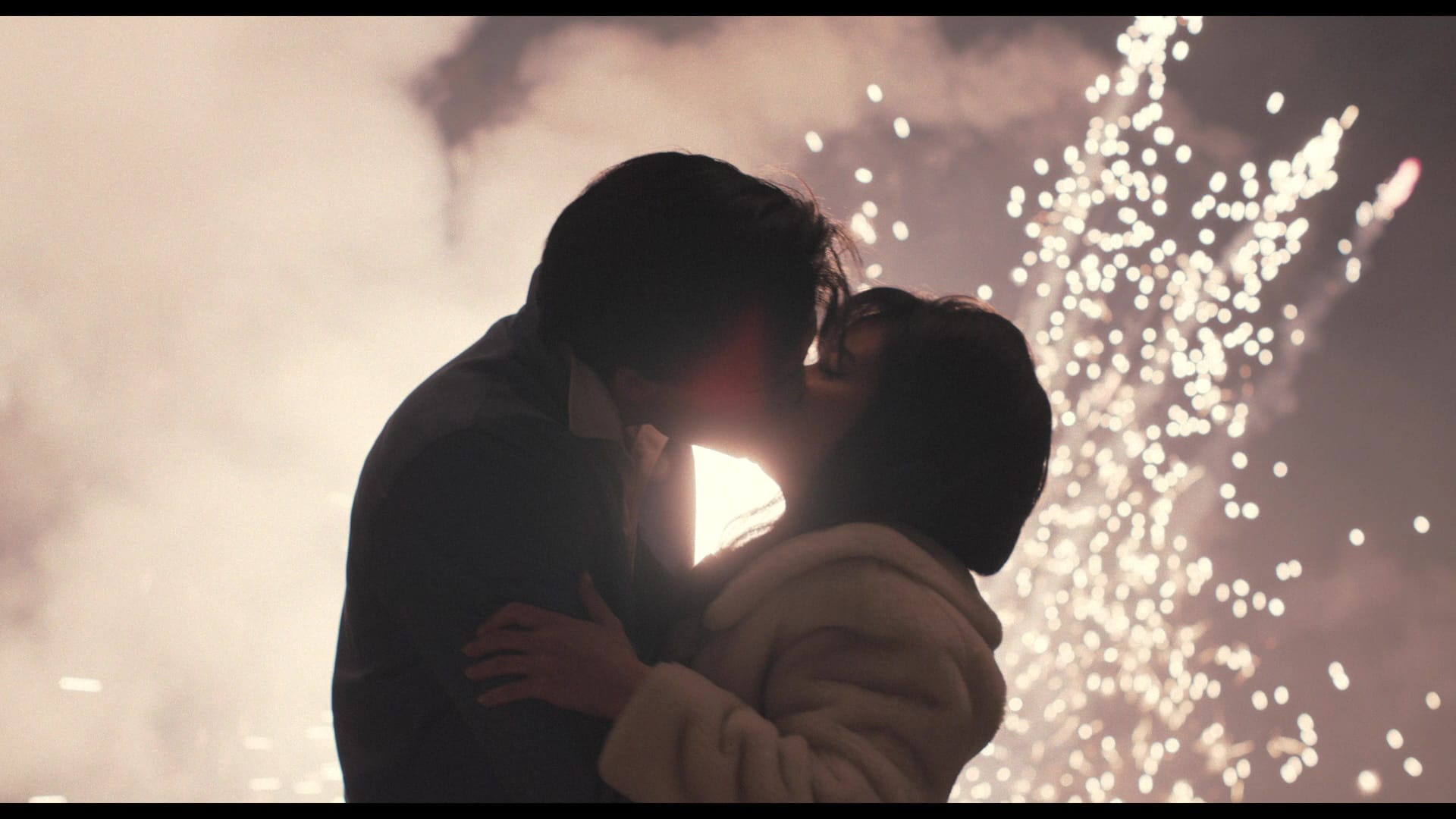
A more generous person might argue that this is the point, but given how movingly Coppola has examined empty lives, unfettered privilege and ennui in the past – particularly in Marie Antoinette and Somewhere – Priscilla feels like a bust. I don't know what she wants to say with this one, and I don't know why she made it.
The casting is interesting, and Coppola’s visual strategy of contrasting tiny Cailee Spaeny against towering Jacob Elordi definitely works to convey the couple’s power imbalance … but it also works to obscure a somewhat more crucial reality, which was that Elvis Presley was a decade older than the teenager he was grooming. Elordi is just a year or so older than his co-star, and they look like contemporaries no matter how they’re styled or made up.
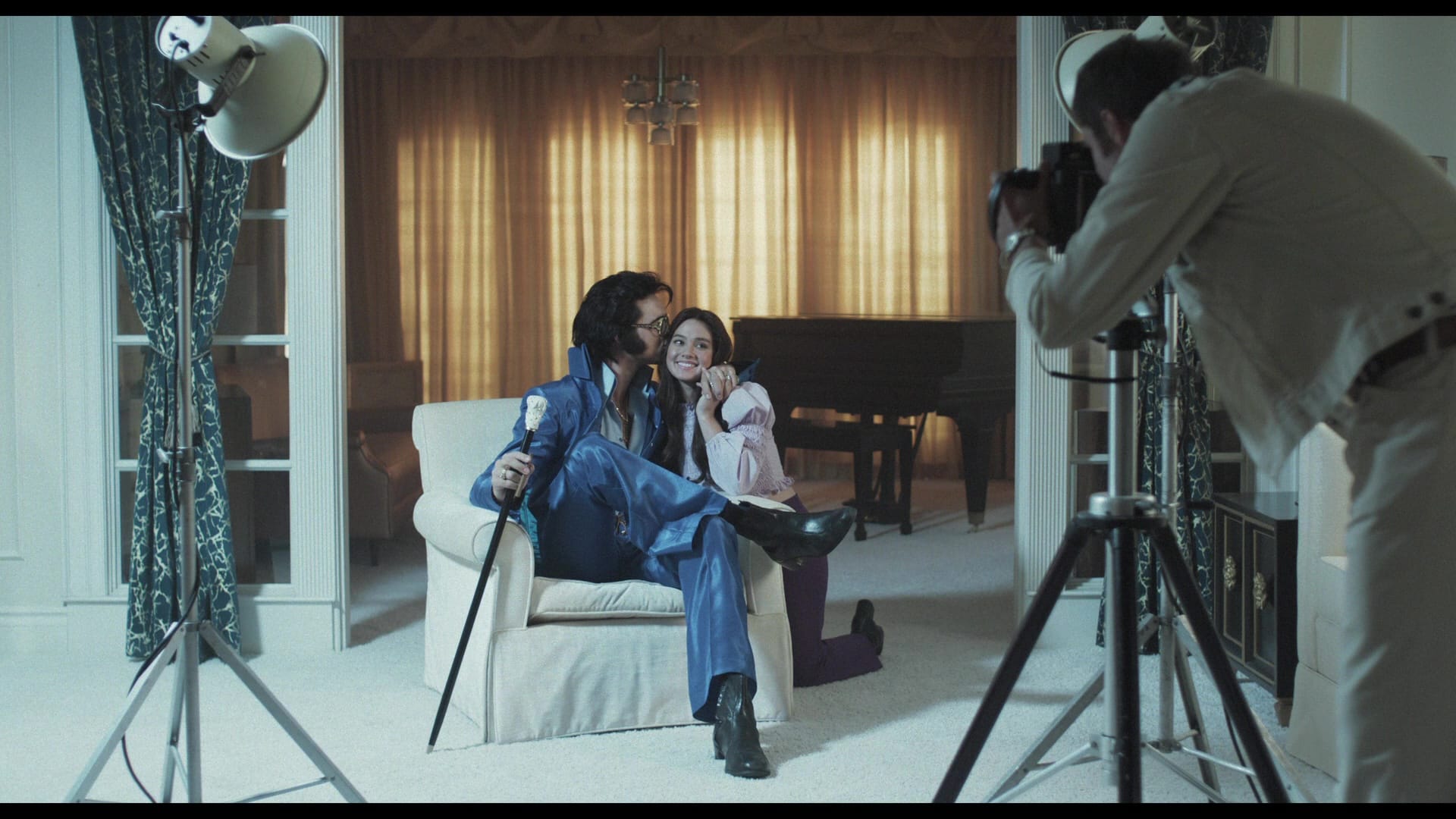
We never really know who Priscilla Beaulieu is, other than a 14-year-old girl who’s understandably overwhelmed by the fact that Elvis Presley tells her she understands him? Who’s Elvis, even, besides a pillhead entertainer whose narcissism is fed by his clingy family and the herd of yes-men who follow him around like hyenas, cheering on his every impulse?
I initially thought Coppola’s depiction of the Memphis Mafia as a cluster of pantomime idiots was way too broad, but then I realized that’s exactly how Priscilla would have perceived them. Maybe it’s just that I wanted to see the Toronto actors playing said idiots – among them Dan Beirne, Dan Abramovici and Rodrigo Fernandez-Stoll – get more substantial roles. But this is Priscilla’s story, so they’re on the sidelines.
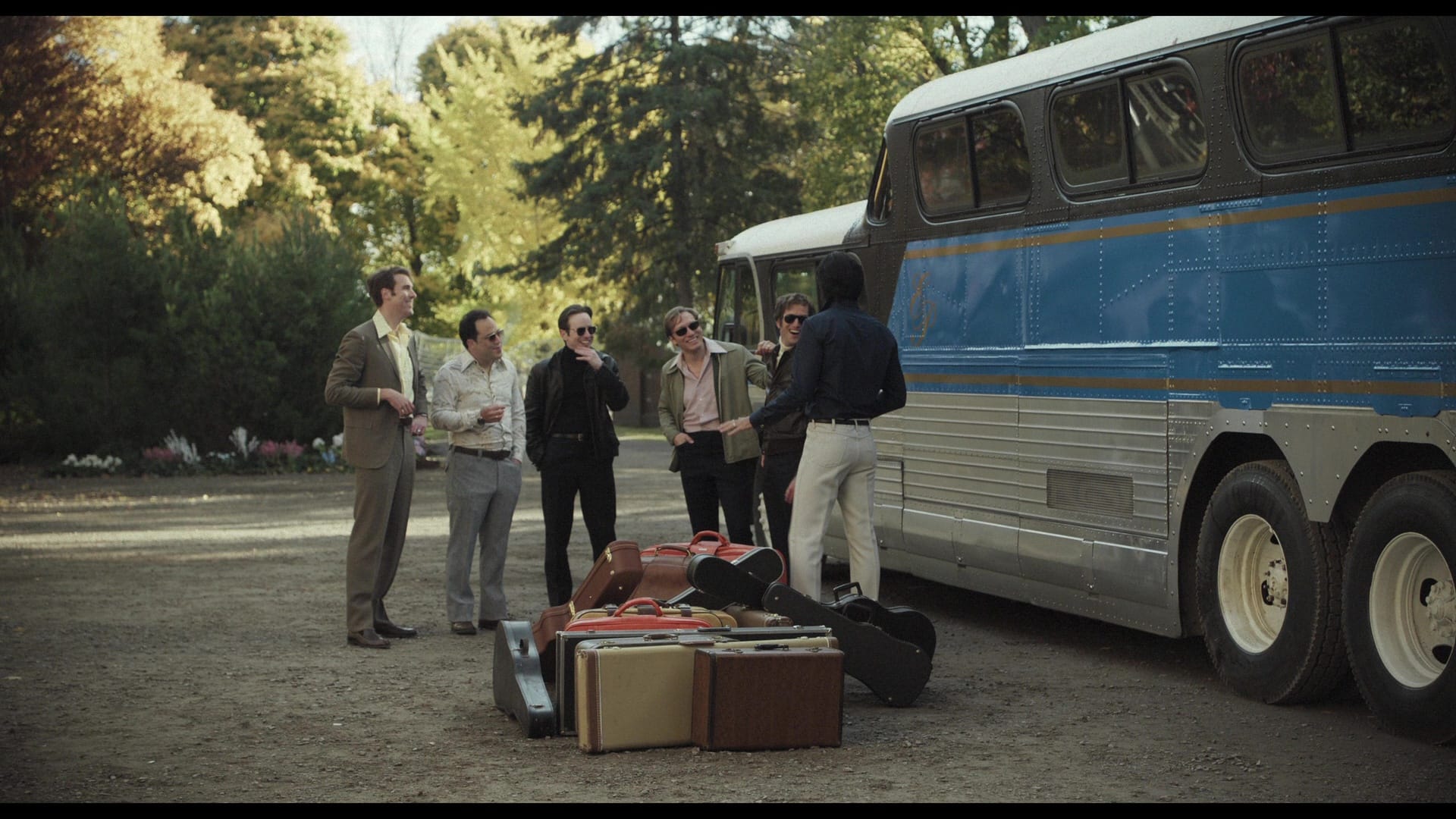
Though Elevation’s packaging lists no special features, it turns out the Canadian Blu-ray offers more supplemental material than Lionsgate’s US disc. Both releases include the glossy production featurette “Brushed with Beauty: Creating Priscilla’s Story” and Liv McNeil’s half-hour documentary “The Making of Priscilla”, but Elevation also throws in “Dressing Elvis & Priscilla”, seemingly an alternate edit of “Brushed with Beauty” that gives costume designer Stacey Battat more time to discuss the attention paid to Elordi and Spaeny’s wardrobes.
“The Making of Priscilla” is the real standout, a fly-on-the-wall look at the production shot by Concordia film student and occasional actor McNeil – “a 17-year-old girl shooting a making-of film about another teenage girl,” as she puts it. It’s unpolished and very watchable, and if you’re curious to see on a really big screen, the TIFF Next Wave Presents series is showing it at the Lightbox March 1st, with the filmmaker in attendance. (It’s free for members and everything!)
I don’t use “unpolished” as a negative, by the way; McNeil gets more access by just hanging around and trusting people to open up: Spaeny and Elordi respond to her as a contemporary, goofing around outside their trailers, while Coppola and the real Priscilla certainly seem more relaxed around her than they might have been in front of a full documentary crew. Everybody complains about the low budget and the short shooting window, but that also feels pretty honest.
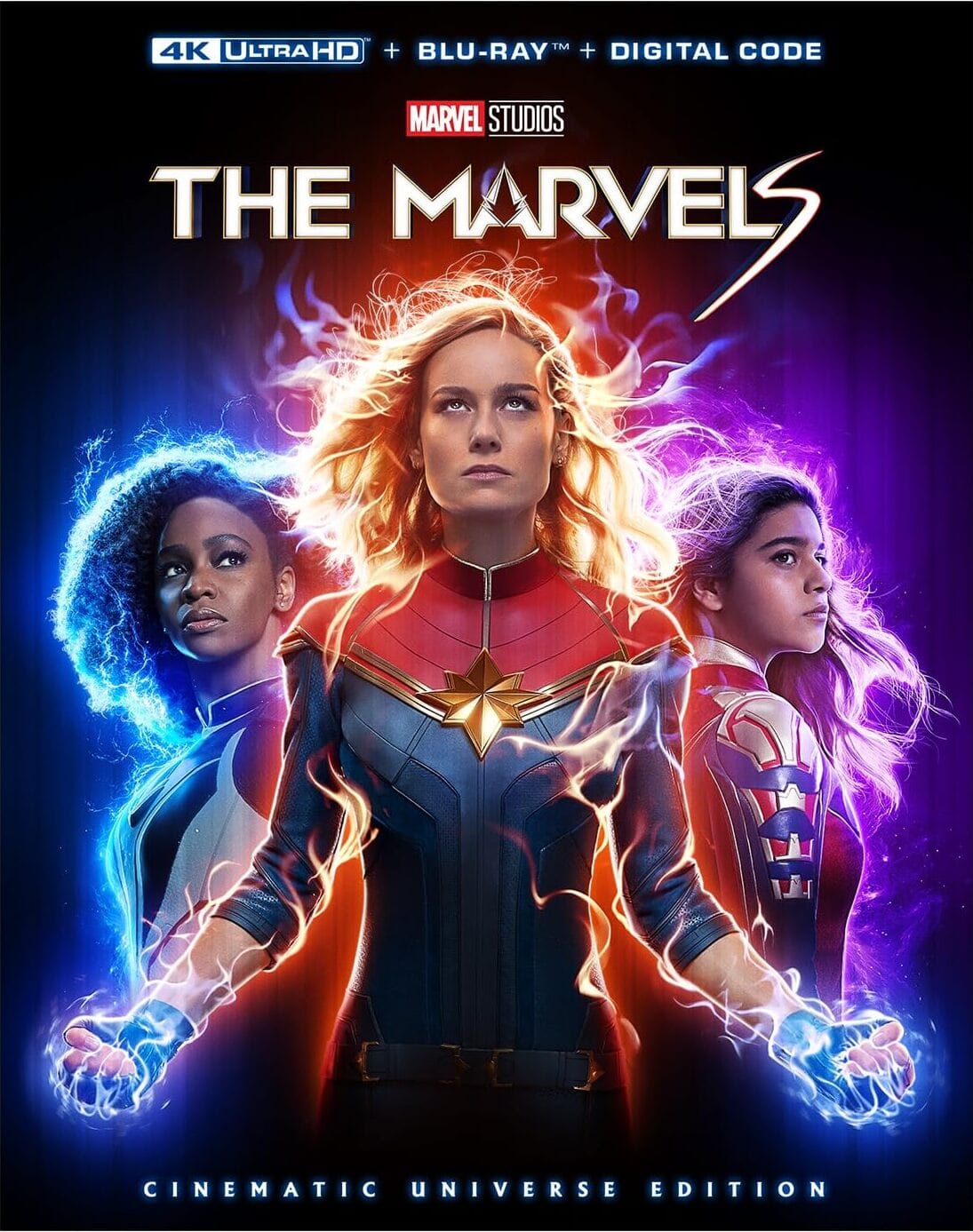
The Marvels, on the other hand, did not have a budget problem; being the 33rd film in the ongoing Marvel movie machine and a sequel to the 2019 smash Captain Marvel, which grossed a billion dollars, I don’t doubt that Kevin Feige and his team wrote a blank cheque for Nia DaCosta and her team. And while the new picture didn’t find the same audience in a post-pandemic landscape, it’s easily the most pure fun I’ve had with a Marvel movie in years.
The Marvels plants its feet as an intergalactic action-adventure-comedy, with Brie Larson’s Carol Danvers entangled with two other power players in the Marvel universe after a quantum event bonds their powers: Kamala Khan (Iman Vellani), the Jersey City superhero who calls herself Ms. Marvel, and Monica Rambeau (Teyonah Parris), gifted with electrical powers after an encounter with the Scarlet Witch in the WandaVision limited series. Monica is also the daughter of the late Maria Rambeau (Lashana Lynch), Carol’s best friend before her cosmic empowerment, and still smarting over her Auntie Carol’s disappearance from her life decades earlier.
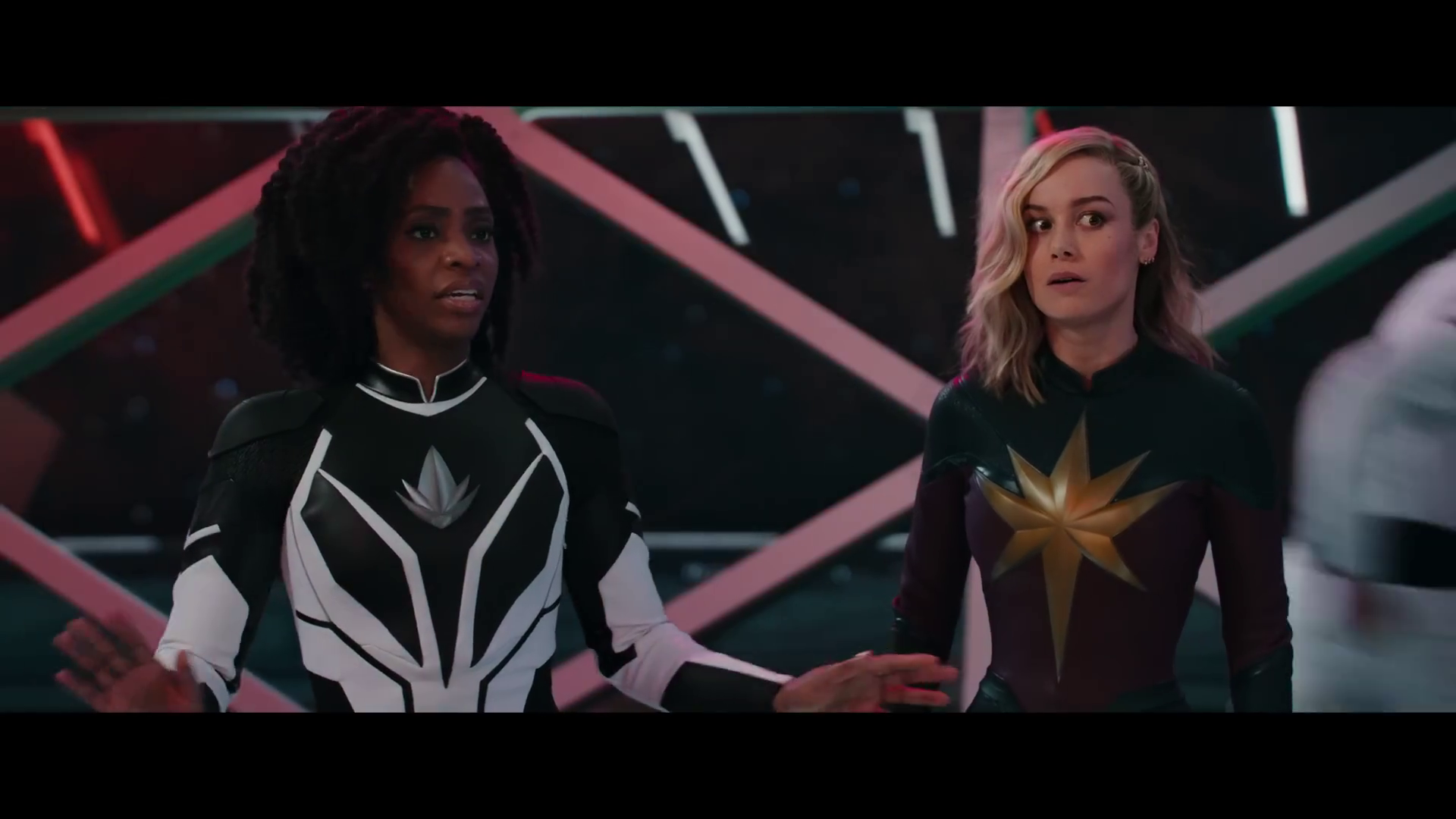
The reason for their entanglement – which results in the trio inconveniently switching places whenever two or more of them activate their powers at the same time – is your usual existential threat: A fanatical Kree named Dar-Benn (Zawe Ashton) is seeking revenge against Carol for her actions against the Kree Empire, using a massively powerful device to open wormholes in space and attack civilizations all over the galaxy.
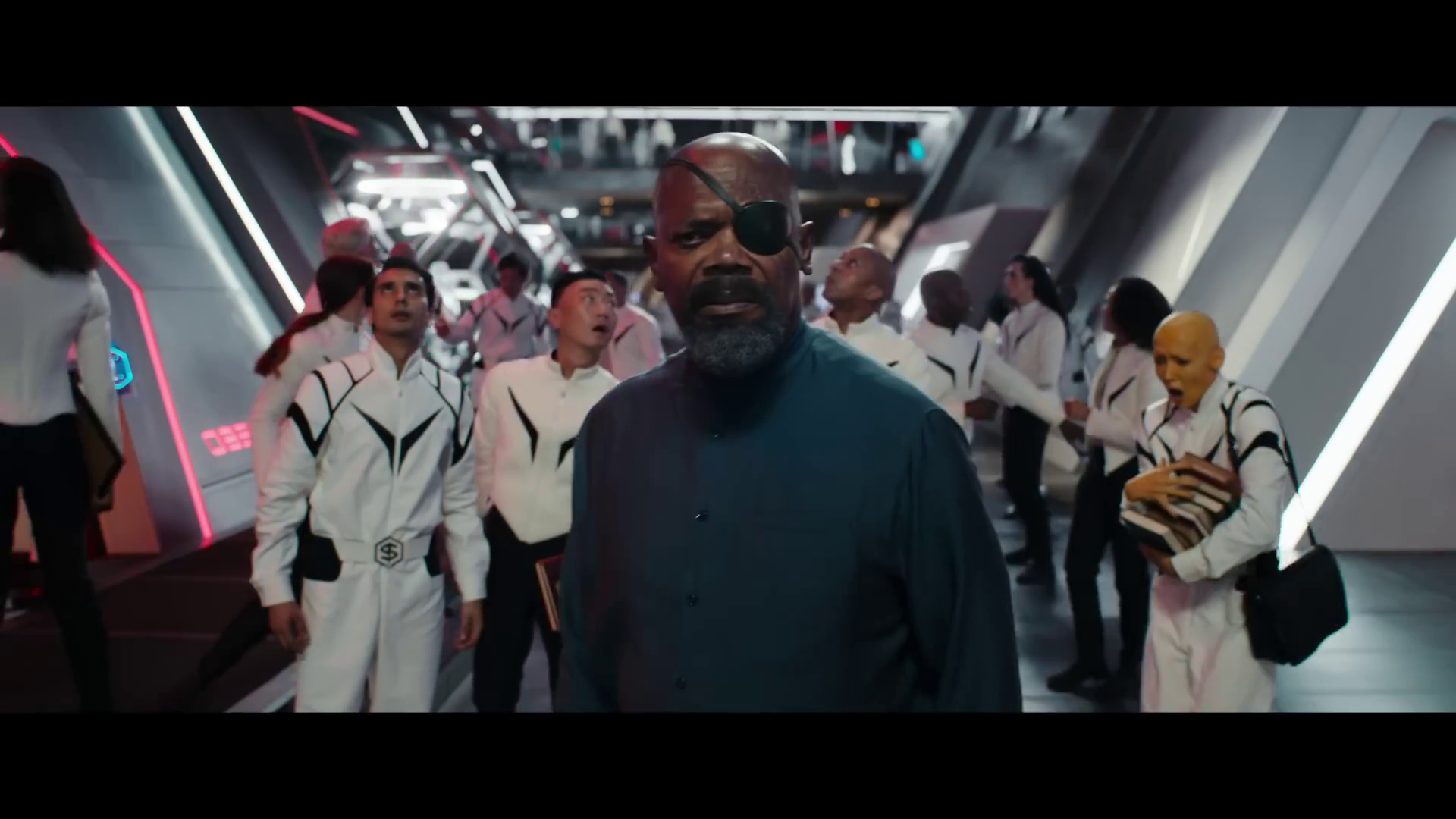
Carol’s old pal Nick Fury (Samuel L. Jackson) gets involved when one of Dar-Benn’s anomalies opens near the SWORD station that orbits Earth, and … you know, any further details are irrelevant, let’s just watch Carol and Monica repair their frayed relationship while Kamala nerds out about having a space adventure with the hero she’s idolized her entire life. Space Besties Forever! And also ... cats?
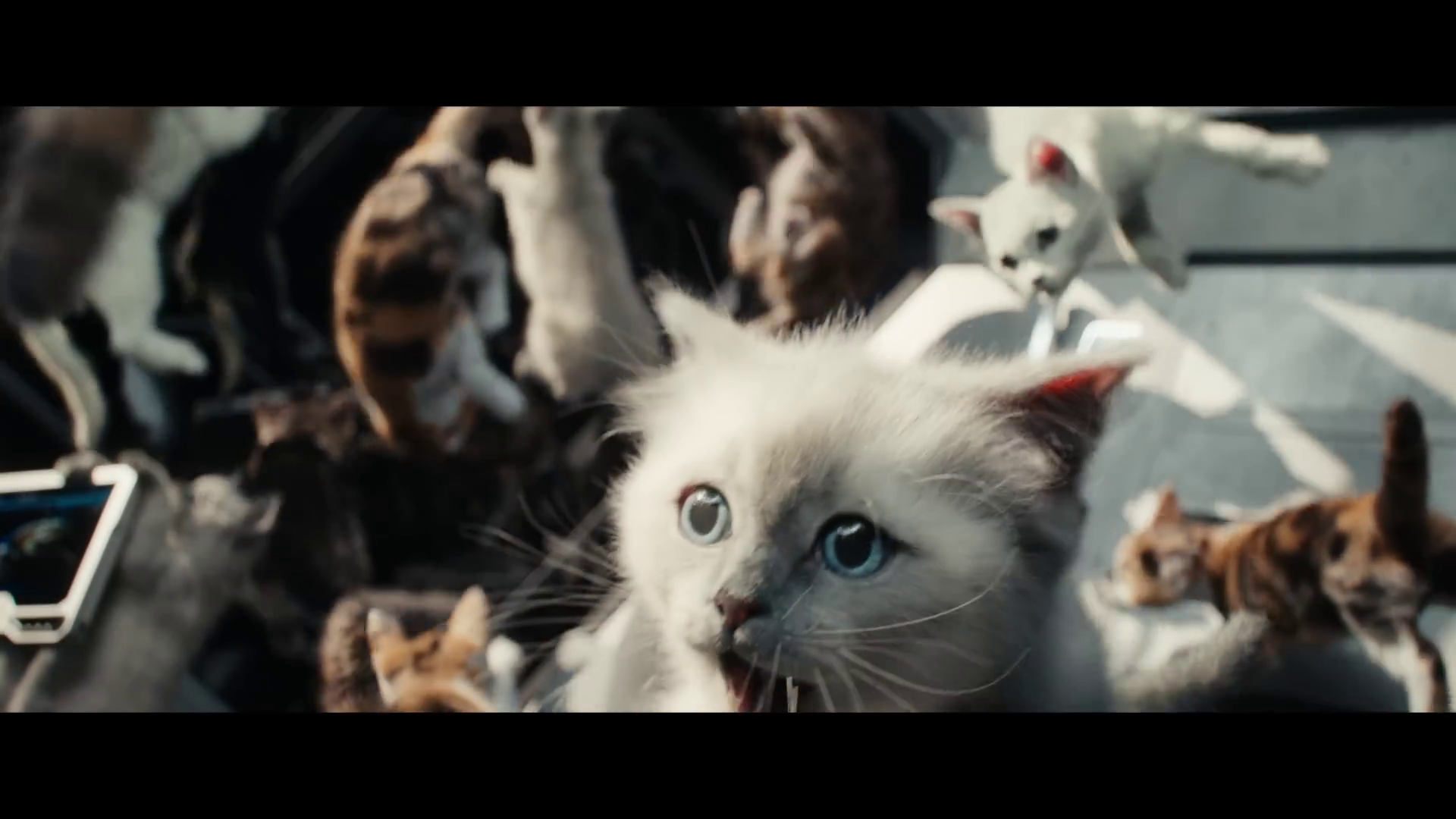
Yes, cats. That’s a feature, not a bug. Captain Marvel told a pretty heavy story, with a brainwashed Carol fighting to reclaim her memories, identity and full power from the Kree Empire … though setting the action in the ’90s and having her spend the first hour road-tripping around California with Jackson’s younger, looser Fury was a fine way to balance that heaviness. Now, Carol is pulled out of her lone-wolf lifestyle as a galactic guardian by having to reconnect with an adult who’s no longer the kid she knew and dealing with her teenaged superfan – and gradually opening up to the possibilities of having actual friends who won’t judge you when you take them to that one planet where you’re hailed as a Disney princess.
Everything’s going to work out in the end – it’s not like there’s any version of The Marvels where Dar-Benn wins – so we might as well enjoy the character dynamics, some nicely crafted action sequences and the return of Kamala’s supportive but concerned family from the terrific Ms. Marvel streaming series, who now end up shaming Nick Fury for sending a child into space to take on an alien armada. Not that Kamala’s got a problem with that, of course, and watching Carol warm up to Kamala’s boundless enthusiasm is the greatest pleasure of The Marvels, because it’s just two people connecting.
These movies can spend so much time struggling with the demands of their mythology, and The Marvels has the interconnectivity of a Captain America sequel besides, so it’s a small miracle that DaCosta and her co-writers, Megan McDonnell and Elissa Karasik, bring it in with such a delicate touch. If you’ve never seen WandaVision or Ms. Marvel, you’ll be fine; the movie brings you up to speed on Monica’s competence and Kamala’s enthusiasm – and their respective power sets – in a matter of minutes, the better to drop Carol into the fray and get to the good stuff.
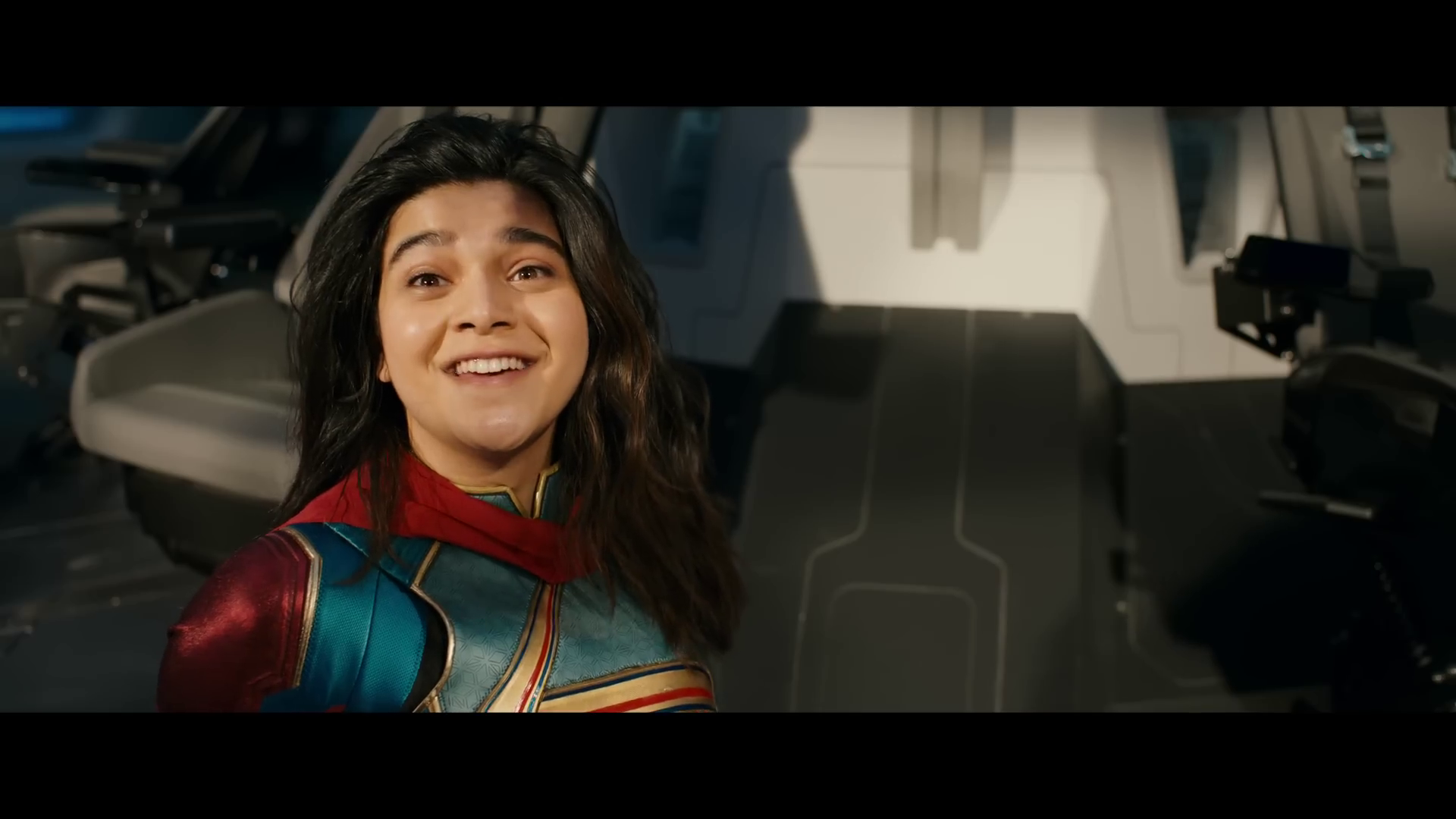
And it’s all good stuff, or at least The Marvels moves quickly enough so that nothing feels lumpy – the Skrull stuff, the Flerken stuff, the musical planet, the “Intergalactic” montage where Kamala gets the yips during a game of super-powered Double Dutch – and ends on a note that’s optimistic rather than fully triumphant, which is appropriate for this particular story and the future of the Marvel project itself. It’s fun! You should enjoy it, if you’ve a mind to. That’s what these movies are for, after all.
Both The Marvels and Priscilla look terrific on disc, if you were wondering. Priscilla’s 1080p/24 transfer captures the muted palette that Coppola and her current DP Philippe Le Sourd (The Beguiling, On the Rocks) have so carefully crafted. You can almost see the dust settling around Priscilla in her isolation at Graceland.
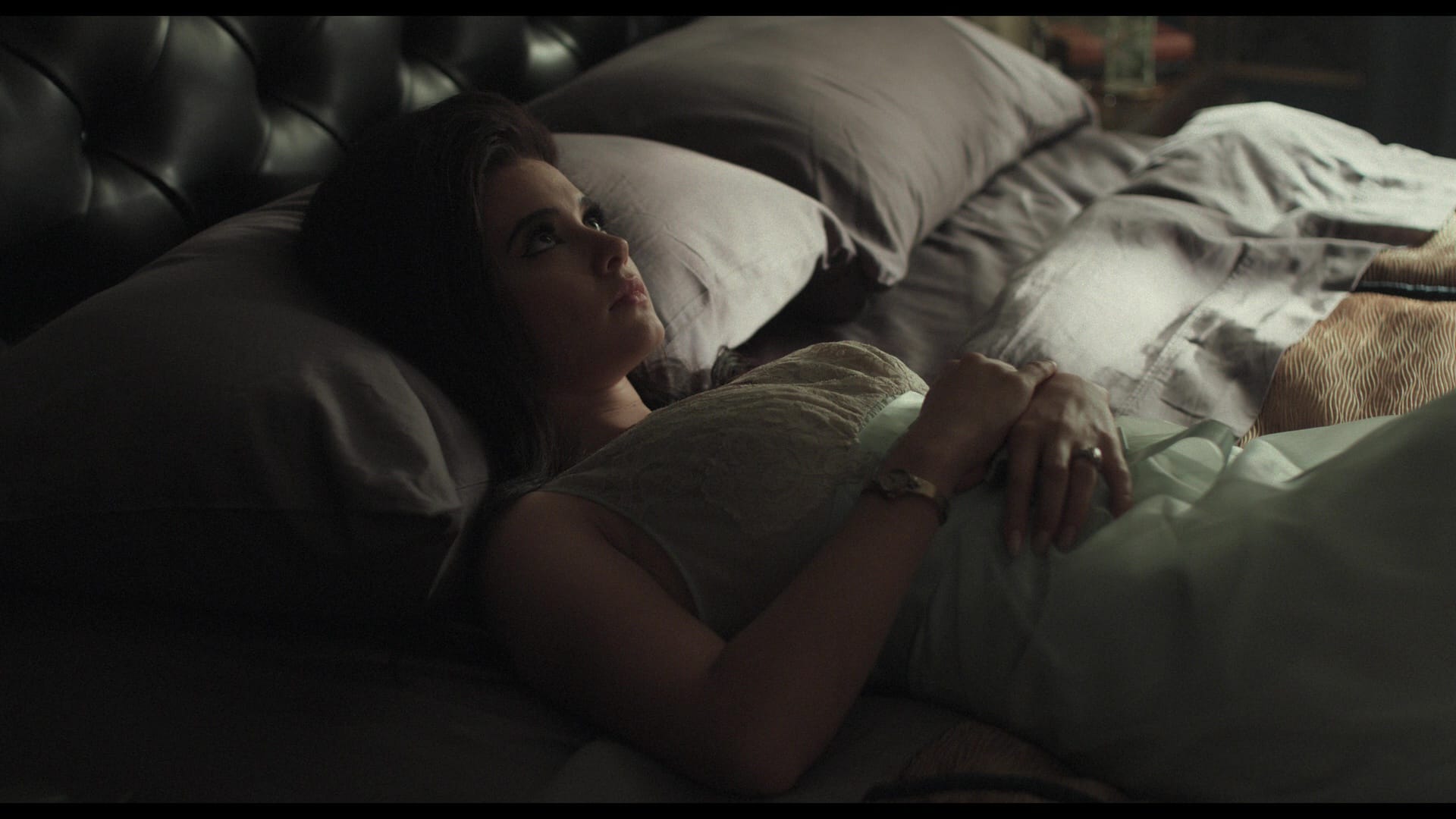
And The Marvels’ 4K presentation uses the wider gamut of HDR to make the purples and golds of various energy fields pop out against the blackness of space; the crackling, popping flares of Kamala’s bangle and Dar-Benn’s power scythe, or whatever it’s called, are especially impressive.
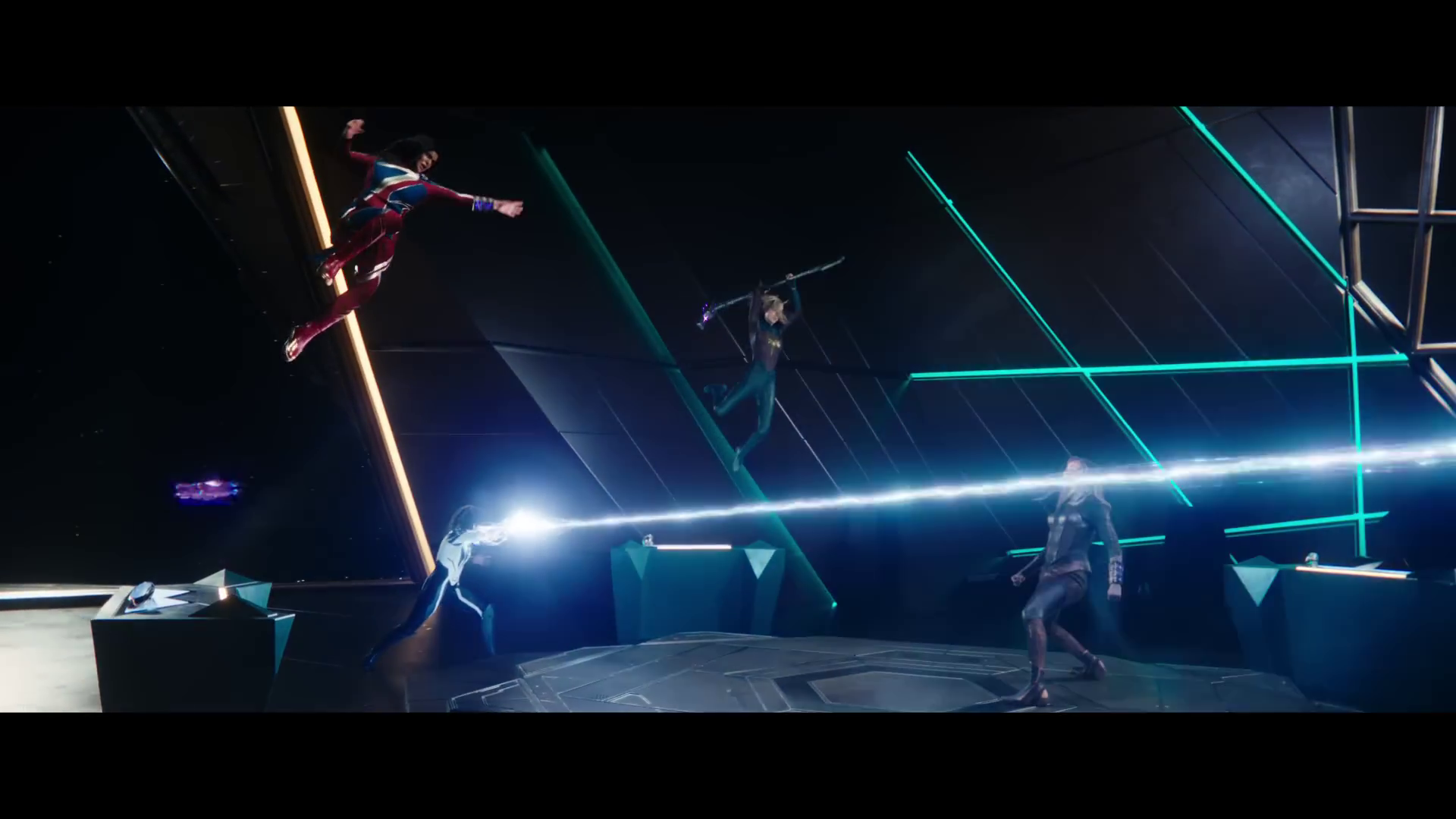
Speaking of little crucial decisions, I really admired the way DP Sean Bobbit – who’s shot all of Steve McQueen’s features, and recently scored an Oscar nomination for Shaka King’s Judas and the Black Messiah – uses the interplay of natural light, skin tones and fabrics during the sequences on the musical planet Aladna to offer us a break from the greenscreen studio stuff that’s become the franchise’s biggest creative limitation. I’m with Kamala: Why aren’t you dancing?
I may not have enjoyed Priscilla, but if you think you might like it I have a Blu-ray to give away, courtesy of Elevation Pictures. Just e-mail me at normwilner@gmail.com with the subject header "Beehive" before 12 noon ET on Wednesday, February 21st; one random correspondent gets the prize!
Coming soon: Sony’s dazzling new Columbia Classics box, Criterion does right by Rohmer and no, I didn’t forget I promised you Tenacious D. Upgrade that subscription so you don’t miss a thing!
